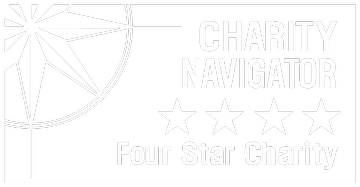Chestnuts Across Maine
What is Chestnuts Across Maine?
Chestnuts Across Maine (CAM) is an exciting, new initiative of the Maine chapter of The American Chestnut Foundation (TACF). Our chapter is partnering with land trusts, state parks, schools, and town squares in Maine to establish small plantings of American chestnuts on lands open to the public. This is a long-term, multi-generational commitment that achieves many of the goals of TACF. Our vision is that by 2035 anyone who wishes to see a live American chestnut tree can find one less than an hour drive from home. We will see chestnut trees thriving within a 10 minute walk of every Maine school. We will establish a network of savvy and experienced conservation partners to help us to test the next blight tolerant chestnuts. We want to make it easy for TACF members to engage with chestnut restoration wherever they live in Maine. We intend to build communities around groves of chestnuts where Mainers will gather in common cause to benefit the ecological and social wealth of their communities.

Volunteers from TACF and the Maine Coast Heritage Trust plant a grove of chestnut trees at the Cousins River Fields and Marsh Preserve in Yarmouth.
Why is CAM Important?
Maine has more wild living chestnuts than any other state, making it our chapter’s duty to conserve their genes for future breeding. As you probably know, the only way to keep Maine’s wild chestnut genetics alive is to grow them. While our large Gene Conservation Orchards are useful, blight can establish and rip through one in a few years. CAM aims to disperse Maine genetics across the state in small groupings as a form of insurance. Not only will the miles between them serve as a layer of protection but this initiative brings chestnuts closer to our members and their communities.
Volunteer With CAM
Think of each grove as a nearby spot where you can help grow chestnuts and engage others in the restoration of the American chestnut to Maine. If you’re game to get involved in a small but valuable role, you might just be a candidate to lead or join a local Chestnut Restoration Team. Explore the CAM webpages for more details and contact our Volunteer Coordinator, Eva Butler at moc.liamg@fcaeniam.reetnulov to figure out the best fit for your time and talents.
Partner With CAM
ME-TACF has undertaken CAM for two main reasons. First, we are safeguarding the genetic diversity of Maine’s chestnuts by planting their progeny in many places throughout the state. Second, each of the chestnut groves becomes a place for ME-TACF and its partners to develop a community’s long-term capacity for chestnut restoration. Together we will organize and teach local residents how to plant and maintain chestnuts for the future, by assembling and growing Chestnut Restoration Teams (CRTs) to caretake these groves.
Candidate sites must offer suitable habitat for chestnuts and be open to the public. Each project site begins by planting 5 to 10 chestnut seedlings, typically between mid-May and mid-July. ME-TACF will supply the trees and materials necessary for planting at no cost. ME-TACF volunteers and the volunteers and/or staff of our partners generally provide the labor for the initial planting.
The CRTs will provide on-going labor to tend and monitor the chestnut trees, reporting their status to ME-TACF. At maturity, CRTs will collect and share nuts from their trees to supply other CAM sites and, in turn, receive nuts from other sources. The most important role for the CRTs will be to educate their communities and expand their ranks to maintain long-term continuity of care for the trees. Community engagement, with special focus on young people, is key to building each community’s capacity for long-term chestnut restoration.
Over time CAM partners could add more chestnuts to a site, including the progeny of newly discovered wild trees and/or trees with improved blight tolerance from TACF’s research. By adding a few more trees every few years, each site can maintain some trees between 7 and 12 years old. In this age range chestnuts can produce nuts but are less vulnerable to blight.
ME-TACF is compiling a list of volunteers and organizations who wish to participate in Chestnuts-Across-Maine. If you are interested, please contact the chapter at gro.fcat@retpahcEM to find out more. We look forward to meeting our future CAM partners over the next months and/or at the next conference of the Maine Land Trust Network in April 2025.
History of Chestnuts Across Maine
2023
In late 2023, many were disheartened with the news that TACF withdrew support of the transgenic Darling 58 chestnut. This momentous decision gave us a chance to pause, regroup, and chart a new course forward. We realized that we were inadequately prepared for restoration, even if a blight tolerant chestnut landed in our laps. It will be a herculean task to restore a tree that once covered 8 million acres from Maine to Georgia.
2024
Ever optimistic, in the spring of 2024 we set ideals as lofty as the tallest chestnut tree soaring above the forest canopy in Lovell, Maine. Our vision is that by 2035 anyone who wishes to see a live American chestnut tree can find one less than an hour drive from home. We will see chestnut trees thriving within a 10 minute walk of every Maine school. We will establish a network of savvy and experienced conservation partners to help us to test the next blight tolerant chestnuts. We want to make it easy for TACF members to engage with chestnut restoration wherever they live in Maine. We intend to build communities around groves of chestnuts where Mainers will gather in common cause to benefit the ecological and social wealth of their communities.
CAM began in the spring of 2024 as a pilot project. Candidate sites were chosen that were open to the public and had suitable conditions for growing chestnuts. ME-TACF supplied 6 to 10 trees and the materials necessary for planting at no cost. Volunteers from METACF and the host organization worked side-by-side to plant chestnut trees, get to know each other, and have fun. A team of chestnut stewards is organizing around each planting, will provide the on-going care and monitoring of the chestnut trees, and report on their survival and growth. However, the most important role for these “chestnut recovery teams” will be to educate their communities and expand their ranks to maintain, care for, and admire these special trees. Our hope is to build a community around the chestnuts, especially engaging younger generations who someday will carry forward the restoration of the chestnut.
2024 Plantings
During our pilot year, ME-TACF coordinated plantings with 8 organizations;
- Blueberry Cove 4-H camp in St. George
- Maine Audubon’s Field Pond Center in Holden
- the Bangor High School and Mary Snow School in Bangor
- The Frenchman’s Bay Conservancy in Hancock
- the Cousins River Fields and Marsh Preserve, Maine Coast Heritage Trust in Yarmouth
- the Loon Echo Land Trust in Bridgeton
- the Sanford-Springvale Mousam Way Land Trust in Springvale
- Cultivating Community in Portland
The pilot was a success and there was demand from other land trusts and conservation groups. In all about 80 trees from 8 different tree sources were planted. With time, CAM partners will be offered more chestnut trees for each site. This will include the progeny of newly discovered wild trees and trees with gradually improving blight tolerance from TACF’s research programs. We know that many of the trees will succumb to blight, but that is now an inextricable part of the story of the American chestnut. We intend to write grants to purchase educational signage from TACF to place at many of the sites.
Learn more about Chestnuts Across Maine’s accomplishments in the October 2024 issue of The Tree Urchin, the Maine Chapter newsletter



